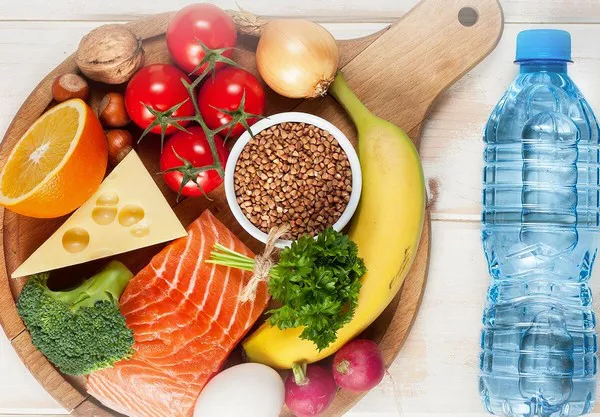Proteins play a vital role in the functioning and structure of our bodies. They are often referred to as the building blocks of life due to their involvement in numerous biological processes. From supporting growth and repair to facilitating chemical reactions and serving as messengers, proteins are essential for the proper functioning of cells and tissues. In this article, we will explore the significance of proteins in our body, examining their diverse functions and highlighting their importance for overall health and well-being.
Proteins is the Fundamental Components of Life
Proteins are large, complex molecules composed of amino acids. They are present in every cell and tissue of our body and are involved in various physiological processes. The human body requires proteins for a multitude of functions, which we will explore in the following paragraphs.
1. The Role of Proteins in Building and Maintaining Tissues
One of the primary functions of proteins is to provide structural support to cells and tissues. They form the basis of many structural components in our body, such as muscles, bones, tendons, and skin. For example, the protein collagen is a crucial component of connective tissues, providing strength and elasticity to the skin, ligaments, and blood vessels. Actin and myosin proteins are responsible for muscle contraction and movement. Without proteins, our body would lack the necessary framework to maintain its shape and perform essential functions.
2. Proteins as Catalysts of Chemical Reactions
Proteins also serve as catalysts for chemical reactions in the body. Enzymes, which are specialized proteins, facilitate and accelerate biochemical reactions by lowering the activation energy required for the reactions to occur. Enzymes play a crucial role in digestion, metabolism, and the production of energy. For example, the enzyme amylase helps break down carbohydrates into simpler sugars, while lipases assist in the digestion and absorption of fats. Without proteins acting as catalysts, many essential biochemical processes would be inefficient or unable to occur.
3.Proteins as Messengers and Carriers
Proteins play a vital role in the transport and communication within our body. Some proteins act as messengers, transmitting signals between cells and tissues. For instance, hormones are specialized proteins that regulate various physiological processes, such as growth, metabolism, and reproduction. Insulin, for example, helps regulate blood sugar levels. Other proteins act as carriers, transporting essential molecules such as oxygen, nutrients, and waste products throughout the body. Hemoglobin, a protein found in red blood cells, carries oxygen from the lungs to tissues and organs. Without proteins, our body would struggle to transmit signals and deliver necessary substances to where they are needed.
4.Proteins as Defenders Against Harmful Substances
Proteins are an essential component of the immune system, which defends our body against harmful substances, such as bacteria, viruses, and toxins. Antibodies, a type of protein produced by the immune system, recognize and neutralize foreign invaders, helping to prevent infections and diseases. Additionally, proteins called complement proteins assist in the destruction of pathogens by promoting inflammation and attracting immune cells to the site of infection. The immune system relies heavily on proteins to identify, target, and eliminate threats, safeguarding our health and well-being.
5.Proteins for Development and Recovery
Proteins are crucial for growth, development, and the repair of tissues in our body. They are involved in the synthesis and maintenance of new cells, allowing us to grow and develop during childhood and adolescence. Additionally, proteins play a vital role in tissue repair and recovery. When we experience injuries or undergo physical stress, proteins are essential for rebuilding damaged tissues and promoting healing. For example, collagen plays a crucial role in wound healing by providing the structural framework for new tissue formation. Proteins are vital for maintaining the integrity and functionality of our body’s structures.
Conclusion
In conclusion, proteins are vital to the proper functioning and overall health of our body. They serve as the building blocks of life, participating in various essential processes. From providing structural support to facilitating chemical reactions, transporting substances, defending against pathogens, and supporting growth and repair, proteins play a crucial role in almost every aspect of our biological functioning. To ensure an adequate protein intake, it is essential to consume a balanced diet that includes a variety of protein-rich foods, such as lean meats, fish, poultry, dairy products, legumes, nuts, and seeds. By recognizing the importance of proteins in our body and incorporating them into our diet, we can support optimal health and well-being.
[inline_related_posts title=”You Might Be Interested In” title_align=”left” style=”list” number=”6″ align=”none” ids=”3111,3109,3107″ by=”categories” orderby=”rand” order=”DESC” hide_thumb=”no” thumb_right=”no” views=”no” date=”yes” grid_columns=”2″ post_type=”” tax=””]































